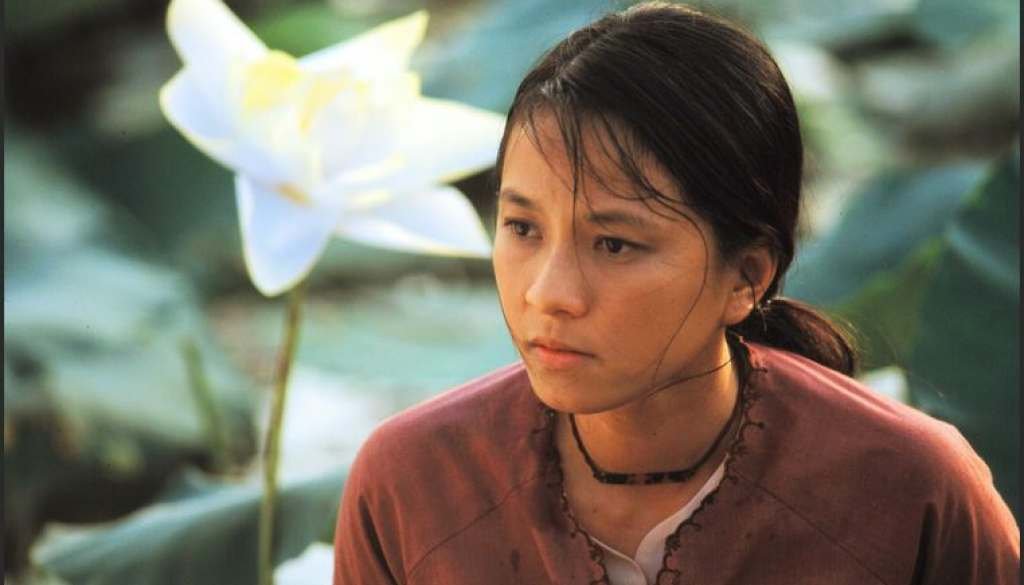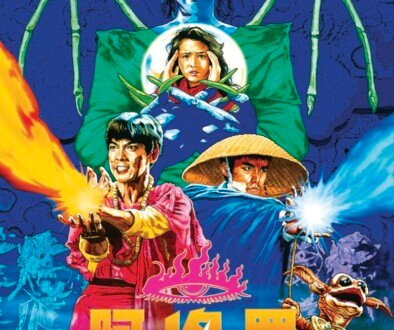NYAFF XXIII Review: In THREE SEASONS, A Genuine Article Blooms
3 min. read
Tony Bui’s 1999 debut feature, Three Seasons, has got to be one of those titles my eyes glazed over time and again while browsing on IMDb to pass the time. The notable casting of actor Harvey Keitel would certainly lend to the film’s visibility given his screen resumé and now, the film’s Special Presentation at this year’s New York Asian Film Festival has stepped up to further protract its posterity.
Directed by Bui from a script he wrote with Timothy Linh Bui, the film crosses between four intersecting lives in Saigon. Kien An (Ngọc Hiệp) is a beautiful young woman hired to help farm, pick and sell lotus flowers in the bustling streets. Rumors frame perceptions surrounding her reclusive employer, Dao (Manh Cuong Tran), while An treads carefully so as to not step on toes of the elder songstresses among the workforce.
We also meet Hai (Đơn Dương), a cyclo driver whose latest interest in a prostitute named Lan (Zoe Bui) finds him waiting outside a ritzy hotel to transport her whenever she comes and goes. Additionally, young street vendor named Woody (Nguyễn Hữu Được) who treads the seedy night time streets, selling knick-knacks and gum out of a wooden carry-on case to make some coin. Upon wandering into a bar, he meets James (Keitel), a G.I. who is routinely seen sitting outside of a hotel across from a certain location.
The film picks up at an even pace between each arc. An finds herself meeting Dao face to face and acquainting herself with his seldom-known pastime, and even volunteering to help him personally while he battles his ailment. With Hai, his consistency in effort to win Lan over are routinely tested as he gets to know her, fully aware over time of her intentions, her worldview, and the self-harm even she chooses to neglect for a number of reasons, namely fear and a degree of self-hate. Woody’s journey comes at a price when he loses his wooden case during a brief blackout, followed by James’ disappearance, compelling him to search for the man he shared a drink with or face being homeless by his abusive ward.
These stories each develop and are woven together in a gripping snapshot of the diaspora in Vietnam, lending a cinematic view that feels as eye-opening now as it probably did to viewers who got to see it for themselves in the last twenty-five years. A few of these characters intersect at times during the film’s progression, and with each of their interactions with other characters throughout the film, Bui proffers another stroke of beauty and grit in painting Saigon’s complex atmosphere, both beautiful and bristling and historic in depiction. Thematic messages of kindness are conveyed in-between the murk and hardship, topped off with an air of poignance and redeemability that echoes a sense of love and humanistic triumph.
I rarely touch on films like these per my own interests, but I love to do so when the opportunity arises. Three Seasons marks another total blind watch for me, earning, in my view, a praiseworthy recommendation as a piece of cinema that dares you to look beyond material things that are artificial and menial, and search for the real.
Three Seasons was reviewed for the New York Asian Film Festival which runs from July 12 through 28.
Native New Yorker. Been writing for a long time now, and I enjoy what I do. Be nice to me!






